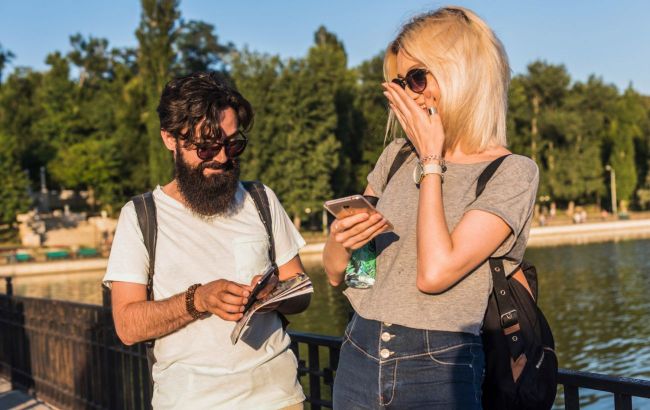Сommunication mistakes that may ruin your trip - How to talk to Europeans without offending
 Strange nuances tourists should know when communicating with locals in European countries (photo: Freepik)
Strange nuances tourists should know when communicating with locals in European countries (photo: Freepik)
In different countries, attitudes toward time, relaxation, non-verbal communication, and business etiquette vary. Knowing these nuances makes communication more comfortable and helps with adaptation in a new environment. Here are five interesting examples from different European countries.
Germany: Punctuality is respect
In Germany, punctuality is considered not just politeness but an integral part of the culture. Being late by even a few minutes can be seen as disrespect or negligence.
Meetings usually start exactly at the scheduled time and last exactly as long as planned. Even personal meetings are no exception, and people strive to be punctual in their private lives as well.
This style of time management helps maintain order and efficiency. Punctuality also influences one's reputation in both business and social circles.
Spain: Siesta and pace of life
In Spain, rest is not seen as laziness, but rather as an important part of daily life. Many shops and businesses take a break from around 2:30 PM to 6:30 PM, and during hot summer months, this schedule is extended.
In August, even popular establishments may close for a month to give employees a rest. Spaniards are relaxed about time, and lateness to meetings is considered normal.
They even use a phrase that means "I'm already going" to indicate they're running late. This approach requires some adjustment but helps maintain a balance between work and life.
 The Spanish siesta is an important part of the daily rhythm (photo: Freepik)
The Spanish siesta is an important part of the daily rhythm (photo: Freepik)
Italy: Slow rhythm and 'con calma'
In Italy, there's a phrase, "con calma," meaning "calmly, without rush." This reflects the local way of life, where time is seen as an endless resource. Italians are not in a hurry, and they enjoy stopping for coffee or a chat, even if it holds others up in line.
Delays and tardiness are normal, and no one views them with concern. Business and daily processes may proceed more slowly than in other countries. This approach helps people relax and enjoy the moment.
France: Rich non-verbal communication
In France, special attention is given to gestures, facial expressions, and sounds that complement spoken language. Sighs, tongue clicks, and various sounds make conversations more lively and expressive. These non-verbal elements often carry more meaning than words.
It's important to recognize irony and sarcasm, which are widely used in everyday conversations. French people often use these to express emotions and emphasize their point.
Portugal: Personal contact is essential
In Portugal, written communication is often not effective because responses to letters and messages may be delayed for weeks. The much better way to resolve matters is through a personal meeting.
Personal acquaintance and face-to-face communication increase the chances of successful resolution. This feature is not only common in private life but also in professional settings. People trust those they have seen and communicated with in person more than those they haven't.
Previously, we wrote about the brightest festivals and holidays in Europe in July 2025.
Sources: HuffPost and Live Science websites.

